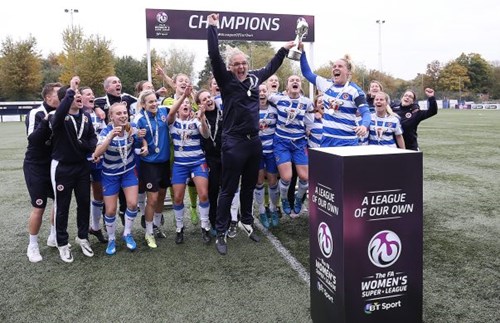Reading FC Women’s manager Kelly Chambers has lauded recent developments in sports psychology as hugely beneficial for how mental health is perceived in football.
Speaking exclusively to UCFB, she revealed how psychological help for players and staff is the next logical step for the club as it battles for supremacy in the Women’s Super League. Chambers said: “I believe that it will be very useful for us to progress to that next level; for us as a club it’s like a stepping stone. We’ve got players that might perhaps have mental health issues, they might be battling something on the pitch, they’re not performing or they need help with something.”
Having arrived at Reading 16 years ago as a girl’s centre of excellence coach, Chambers has a wealth of experience when it comes to the management of both players as individuals and collectively as a team. She explained how for young coaches, differentiating between both can be difficult when trying to strike a perfect balance.

Chambers led Reading to the Division 2 title in 2015.
She said: “That’s the hardest [part], especially with new players. I’ve had players that are here now that have been here for 15 years, five or six, or just this season. The longer you know the player you get to know what makes them tick and how to work with them. Do they need an arm around the shoulder or a kick up the backside?”
From her many years in football, Chambers, a former Reading player, highlighted the importance of adaptability when trying to integrate players into a team, particularly new signings.
Chambers said: “Everybody in the world is different, there are no two people the same. Even on the football pitch you see different learning styles – who works with watching it on a video, using a tactics board or just showing it out on the pitch? There are so many variations of it, the hardest part is covering all aspects and trying to get everybody to understand that, especially with new players.”
Chambers also reiterated the importance of how the manager of a team must be open to new experiences and learning every day: “It’s an understanding that builds over time, but sometimes as a manager you’re forced to try things and get people to open up. If they don’t, you learn. It’s learning on the job.”
















